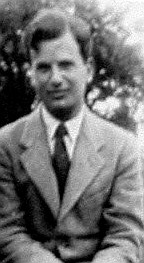| Profile | Major Works | Resources |
Richard F. Kahn, 1905-1989.

Cambridge economist.
Originating from Hempstead, London, from a German Jewish immigrant family, Richard F. Kahn studied at King's College, Cambridge under John Maynard Keynes. He was elected fellow of King's College in 1930.
A sparse writer, Richard F. Kahn renown nonetheless rests on a fundamental idea he formulated at the age of 25 and published in 1931 - which was duly pinched by his master, John Maynard Keynes, and made the centerpiece of the latter's General Theory (1936): the concept of the "multiplier". Kahn, nonetheless, bore his mentor no grudge and instead rose to be one of the leading figures of the Cambridge Keynesians. His colleague and close collaborator, Joan Robinson, was more willing than Keynes to credit him for his intellectual inspiration.
As one of the "fundamentalist" Keynesians of the Cambridge school, Kahn was among the first to deplore the Synthesis between Neoclassical and Keynesian economics that stretched away from the original message of the General Theory (1954, 1977, 1984). An able applied economist, Kahn also put his skills to work for the British Government and the United Nations.
|
Major works of Richard Kahn
|
|
HET
|
|
Resources on Richard Kahn
|
All rights reserved, Gonšalo L. Fonseca
